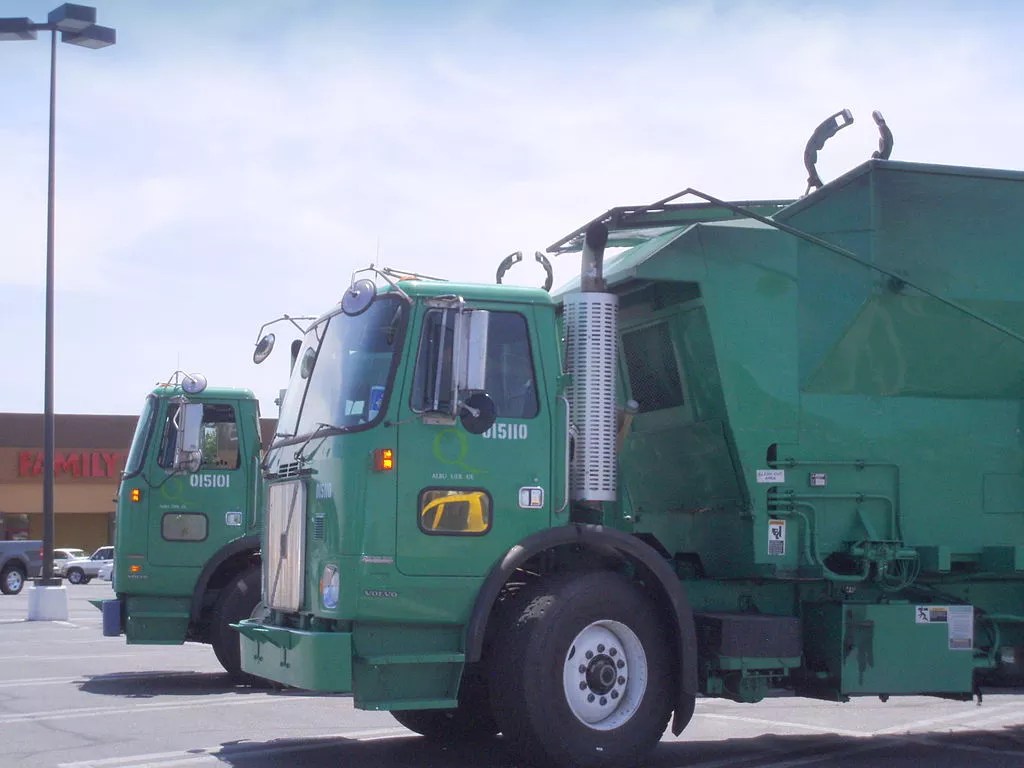
Cathy from USA, CC BY-SA 2.0, via Wikimedia Commons

Audio By Carbonatix
If your recycling and trash are piling up, Dallas sanitation officials insist it’s because there just aren’t enough sanitation workers. The city’s even considering raising pay to attract new employees
But sanitation workers already employed by the city say Dallas isn’t being completely honest about why they can’t get enough trucks on the street.
“The pay is horrible. It’s atrocious,” said one sanitation truck driver, who asked to remain anonymous for fear of retaliation. “I haven’t gotten a raise since I was hired.”
A recent city job posting advertised a truck driver role starting at $16.50. But the job requires a commercial driver’s license, and $16.50 an hour clocks in at around 40% less than the average CDL truck driver makes in Texas.
In recent weeks, the driver said, the hours have gotten longer and lunch breaks have become a thing of the past. He was working from 6:30 a.m. until 3:30 p.m. in the past, but he now wraps up as late as 7 p.m. some days.
“I don’t take lunch most days because I have to get these extra routes done,” he said. “And you’re asking me to do that six days a week? You’re killing the people you have here. So, now they’re looking for another job.”
They may keep the city clean, but unlike firemen or police officers, sanitation workers are neither paid well nor unionized.
In other major cities, it’s common for sanitation workers to strike for better pay. But here in Dallas, local workers say their only choice is to tough it out or find better compensated work elsewhere.
Sanitation workers say that uncompetitive wages that haven’t been raised in years are contributing to an exodus of employees amid a competitive labor market with a large number of open positions.
Since the start of 2020, at least 62 sanitation drivers have voluntarily quit the job, according to the city’s data. Another 37 were fired. With fewer bodies on the job, the remaining 229 drivers are left shifts that span 12 hours or longer.
“You’re killing the people you have here. So, now they’re looking for another job.” – sanitation worker
Still, losing drivers isn’t the only problem, according to an NBCDFW report last month. That report said most missed collections are due to a shortage of temporary employees who work on the back of trucks. The day the report ran, 12 temp workers failed to show up, meaning six trucks were out of commission.
The workers who ride on the back of some trucks are hired by a staffing company that contracts with the city of Dallas. These temp workers make even less than the drivers, although exactly how much depends on whom you ask.
“Results Staffing is the current temporary industrial labor provider,” a city spokesperson said by email, referring to the agency that hires the temps.
“The contract requires the contractor pay laborers assigned to perform services under the agreement at least $12.38 per hour,” the spokesperson added. “We are seeking to have this minimum increased to $15.21 with a new contract set to begin in mid-August.”
But other sources cited lower wages. Results Staffing, for example, lists an active job posting for a “City Sanitation Engineer” starting at $7.50 an hour.
The city’s spokesperson didn’t clarify that wage gap. The interim director of sanitation, Timothy Oliver, didn’t reply to a request for comment, either.
In response to whether the city should raise wages or make the temp roles permanent city positions, City Council member Cara Mendelsohn acknowledged the need to revisit the question.
“It’s something I think we need to look at. What I’ve heard from staff members is there’s a liability issue and they’re trying to offload that liability,” she told NBCDFW.
By liability, she meant injury or death. Trash collection is one of the top five most dangerous jobs in the United States, 17 places higher than police officers. (No wonder the city is struggling to fill the job openings for a job that’s tough, smelly and dangerous.)
Another sanitation employee, a supervisor who also asked to remain anonymous, said the department has great supervisors and managers. “But … those that manage each individual district have taken a great department and in a very, very short time [have] run it into the dirt.”
They added, “And what is being seen today by the public is just the scab over an infected sore that is growing worse by the moment.”